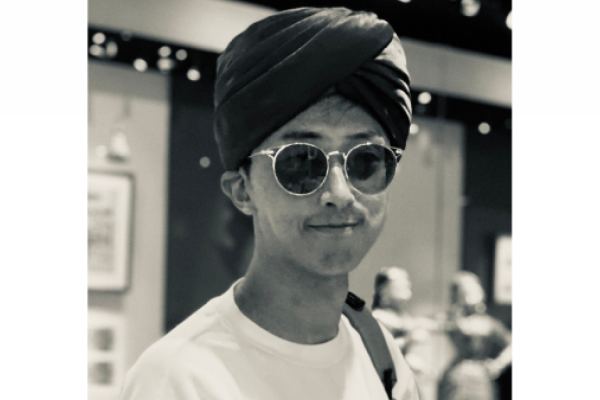
The Institute for Chinese Studies, Department of Near Eastern Languages and Literatures, and South Asian Studies Initiative present:
Methods of Studying India in China
with speakers
Yin Cao, "Those Who Caused Big Troubles: Chinese Sojourners in Wartime India, 1941-1945"
Tsinghua University
and
Adhira Mangalagiri, "Dialogue and its Discontents: Reading Records of Cultural Diplomacy"
Queen Mary University of London
coordinated by
Jin Kim
Department of History, The Ohio State University
Abstract "Those Who Caused Big Troubles: Chinese Sojourners in Wartime India, 1941-1945": This talk will tell the hidden story of the Chinese sojourners in India during World War II. These Chinese smugglers, sailors, deserters, and pilots caused great anxieties to the British and Chinese authorities alike. While the Chinese Nationalist government attempted to incorporate these sojourners into its wartime nation-building projects, the British authorities saw the disciplinary work of the Chinese government in India as a grand geopolitical conspiracy. The Chinese sojourners, in their turn, manipulated the misunderstandings and miscommunications between the British and Chinese authorities to pursue their own interests.
Yin Cao is Associate Professor in the Department of History, Tsinghua University. He obtained his PhD from National University of Singapore in 2016. He teaches Indian history, global history, and colonialism at Tsinghua. He is the author of From Policemen to Revolutionaries: A Sikh Diaspora in Global Shanghai, 1885-1945 (Leiden: Brill, 2018), and Chinese Sojourners in Wartime Raj, 1942-1945 (Oxford: Oxford University Press, forthcoming). He is now working on a book project that explores the British Empire’s imagined infrastructures in Asia in the nineteenth and twentieth centuries.
Abstract "Dialogue and its Discontents: Reading Records of Cultural Diplomacy": The study of non-Western or South-South literary contact unmediated by a colonial center of power often occurs under the sign of “dialogue.” Such approaches presume horizontality, shared political convictions, and unimpeded transfer of meaning between the literary spheres in question. Much of recent scholarship on China’s literary engagement with the emergent Third World in the 1950s tends to follow in this vein. Focusing on the case of 1950s China and India, this talk offers a different methodological approach to studying China’s literary programs of cultural diplomacy. When literary “dialogue” unfolds under the watchful eye of the nation-state, I call for attention to the ellipses – the silences, omissions, and interruptions – that necessarily constitute scripted literary exchange, yet that tend not to garner as much scholarly attention as loud proclamations of solidarity. These ellipses remain uninscribed in official records of the period, but accessing such moments can open lively and unruly forms of transnational literary relations that lie beyond the state’s reach. Ultimately, the talk warns against the tendency in studies of China’s literary engagement with the Global South to valorize the decentering of colonial powers as cultural mediators without a critical engagement with the nation-state's overseeing presence once it occupies that agential role.
Adhira Mangalagiri is a Lecturer (U.S. Assistant Professor) in the Department of Comparative Literature at Queen Mary University of London. Her book, States of Disconnect: China-India Literary Relation in the Twentieth Century (forthcoming with Columbia University Press), studies crises of transnational relations as indexed in Chinese and Hindi literatures (1900-1965). Her research engages questions of world literature, postcolonial studies, and Global South studies, and has recently appeared in The Yearbook of Comparative Literature, the Journal of World Literature, Economic and Political Weekly, Comparative Literature Studies, China and Asia, and in the edited volume Beyond Pan-Asianism (2021). She has held fellowships at the Harvard University Asia Center (2019-2020) and at New York University Shanghai’s Center for Global Asia (2021-2022).\
If you require an accommodation, such as live captioning, to participate in this event, please contact EASC at easc@osu.edu. Requests made at least two weeks in advance of the event will generally allow us to provide seamless access, but the university will make every effort to meet requests made after this date.
This event is supported by a U.S. Department of Education Title VI grant to The Ohio State University East Asian Studies Center.
This event is co-sponsored by The Ohio State University's Department of Near Eastern Languages and Literatures and South Asian Studies Initiative.
